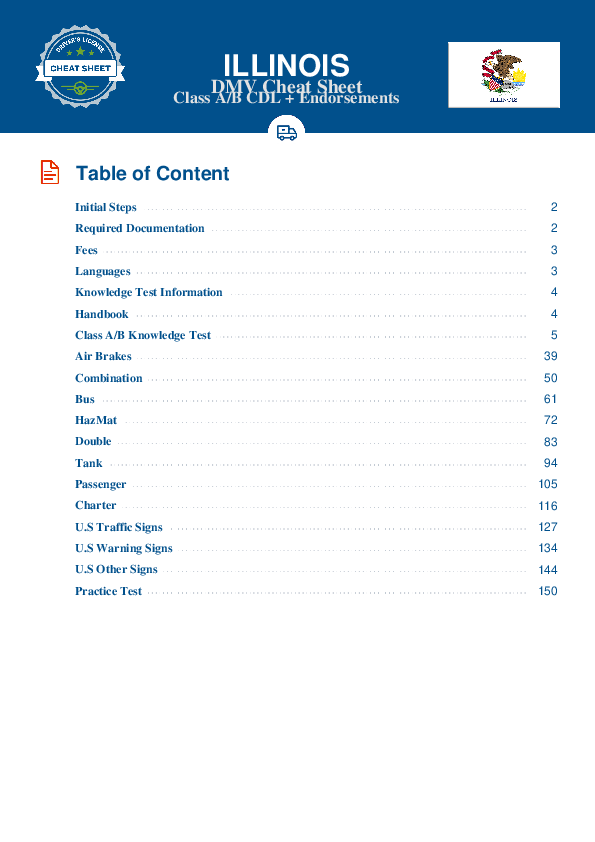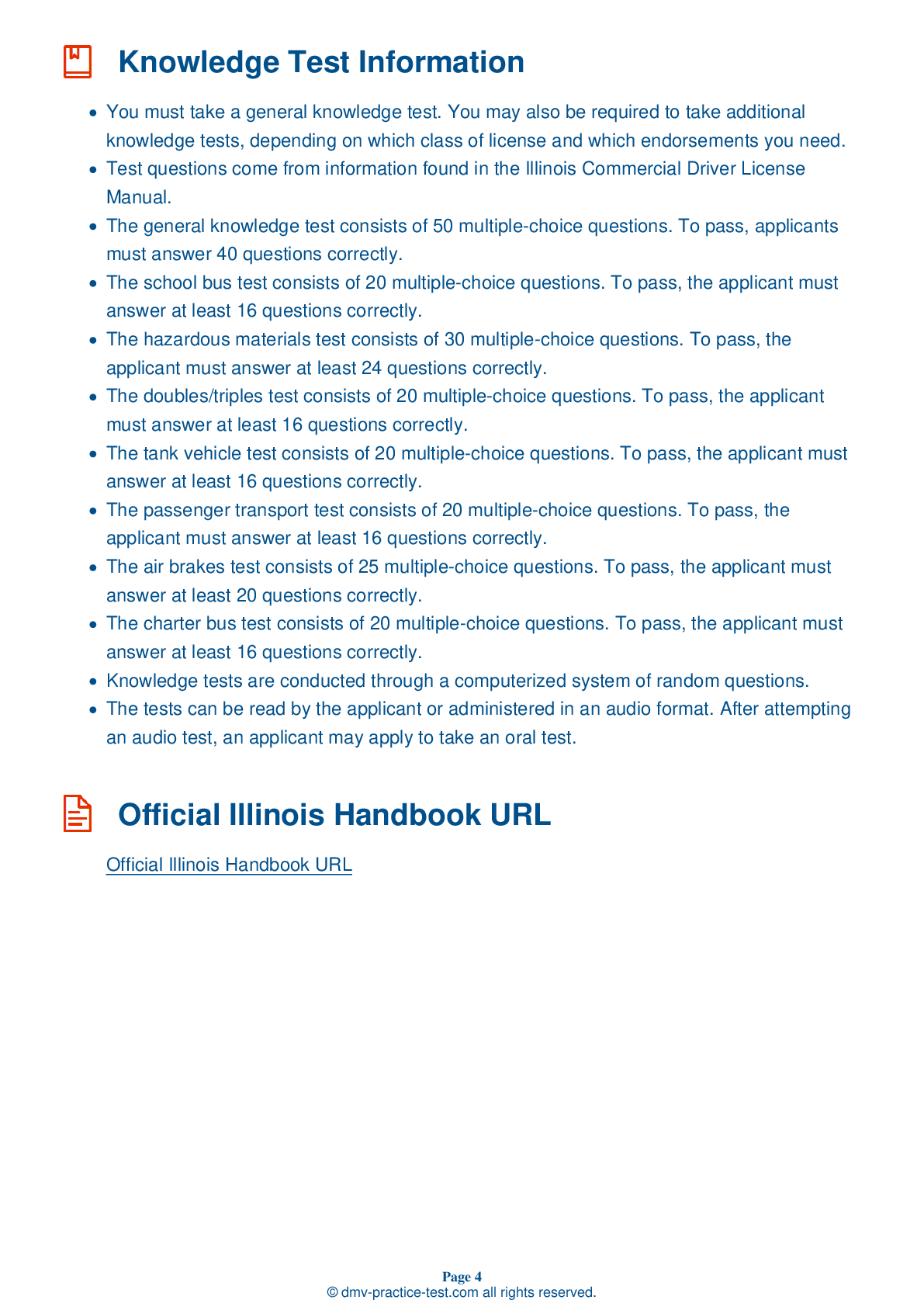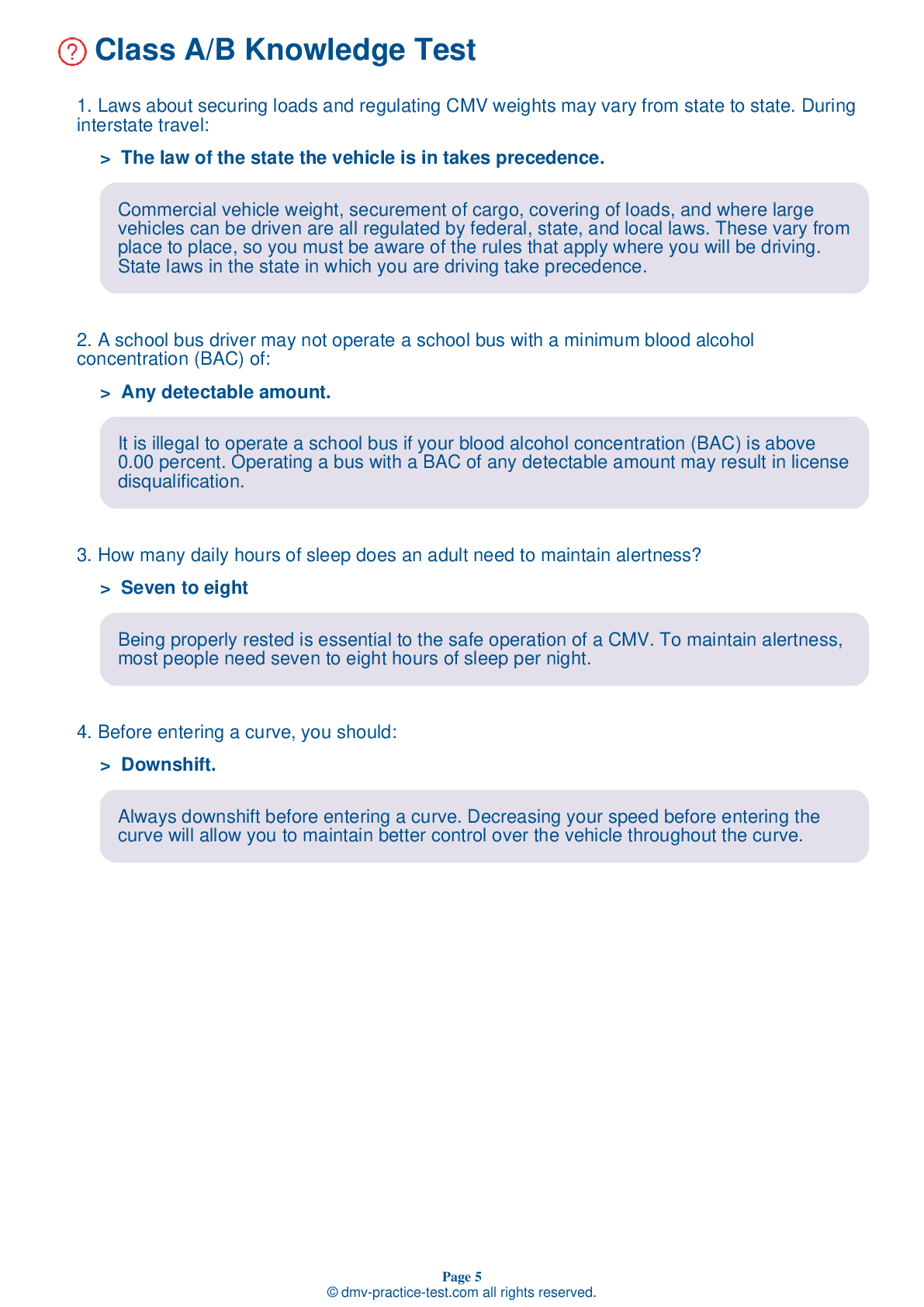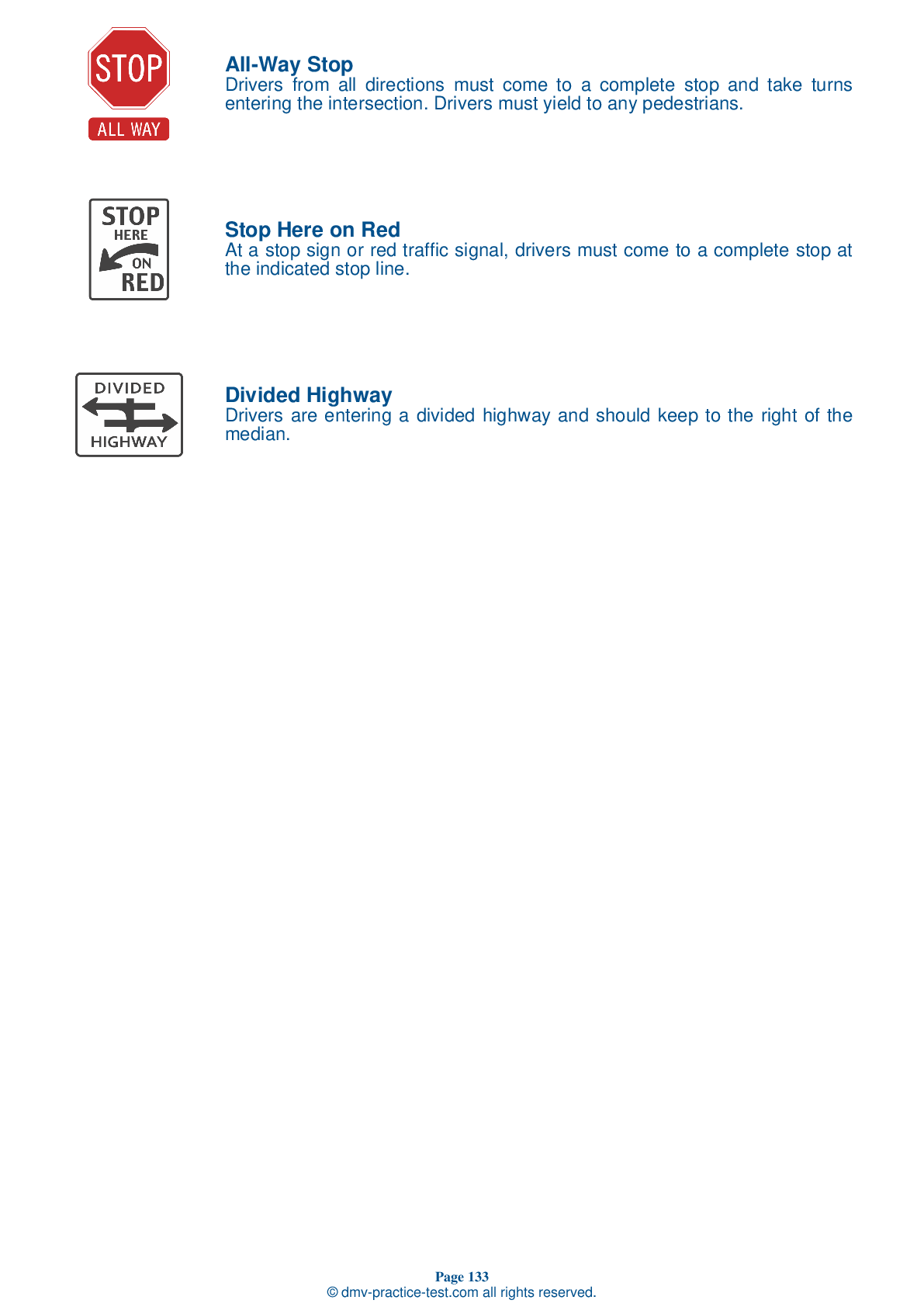Class A Driving Test | Illinois 2026 #1 Page 4 of 7
Train for FREE online with our Illinois class A license test. The official exam test consists of several obligatory parts, with all of them checking your knowledge of different blocks of road rules. If you need to obtain a IL CDL class A permit in 2026, practice as much as possible. Free sample tests published on our website will help you check and improve your knowledge and boost your grades. Please bear in mind that CDL class A requirements may vary from state to state.
22 . Intrastate carriers must have what information displayed on both sides of their vehicle?
Vehicles operated for intrastate commerce must have signs on both sides of the vehicle displaying the trade name, permit number, and registration number of the carrier.
23 . In Illinois, what is the weight limit for a single axle?
The weight of vehicles is limited to 20,000 pounds on a single axle when operated on state and local streets and highways.
24 . When asked to complete an offset back/right parking maneuver, you should:
If you are asked to complete an offset back/right parking maneuver, you should first pull straight forward, then back up to the right. Your vehicle must be parked completely within the boundaries of the parking space.
25 . In the event of an engine fire, you should not:
In the event of an engine fire, you should turn off the engine as soon as possible. Do not open the hood if you can avoid it. Shoot foam through the louvers or from the vehicle’s underside.
26 . The three-time fail rule means:
An applicant who fails any particular CDL test three times must wait 30 days from the date of the third failed test before taking that same test again.
27 . More than ____ during a single skills test exercise will result in an automatic failure.
The examiner will score the number of times your vehicle touches or crosses an exercise boundary line. Each encroachment will count as an error, resulting in points against your skills test score. More than three encroachments on a single exercise will result in a basic control skills test failure.
28 . Brake pads should:
When inspecting your brakes, you should verify that the shoes and pads do not have any oil, grease, or brake fluid on them.
See the exact questions that will be on the 2026 Illinois DMV exam.
99.2% of people who use the cheat sheet pass the FIRST TIME
Lillian MCcranie explains how our CDL study guide was helpful in passing the exam and recommends it to everyone.
Cameron tells us how he purchased the CDL exam, and found it to be a useful tool which helped him pass the exam and find a job.



